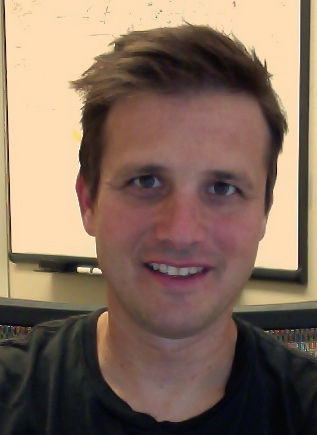Dr. Matthew Bogyo, PhD,
Professor of Pathology, Microbiology & Immunology
Stanford University, CA, USA
Hangout Topic: Proteases in parasites and tumorigenesis
Hangout Schedule: March 21st: 1 PM EST, 12 PM CST, 10 Am PST

Biography: Dr. Bogyo received his Ph.D. in Chemistry from the Massachusetts Institute of Technology in 1997. After completion of his degree he was appointed as a Faculty Fellow in the Department of Biochemistry and Biophysics at the University of California, San Francisco. Dr. Bogyo served as the Head of Chemical Proteomics at Celera Genomics from 2001 to 2003 while maintaining an Adjunct Faculty appointment at UCSF. In the Summer of 2003 Dr. Bogyo joined the Department of Pathology at Stanford Medical School and was appointed as a faculty member in the Department of Microbiology and Immunology in 2004. His interests are focused on the use of chemistry to study the role of proteases in human disease. In particular his laboratory is currently working on understanding the role of cysteine proteases in tumorgenesis and also in the life cycle of the human parasites, Plasmodium falciparum and Toxoplasma gondii. Dr. Bogyo currently serves on the Editorial Board of Biochemical Journal, Chemistry and Biology. Molecular and Cellular Proteomics and is an Academic Editor at PLoS One. Dr. Bogyo is a consultant for several biotechnology and pharmaceutical companies in the Bay Area.
Research
Proteases play key roles in the regulation of normal and pathological processes ranging from cell division to invasion of a host cell by a pathogen. Our laboratory is interested in developing and applying chemical tools to dissect the functional roles of proteases in a number of human health conditions. Our research group is made up of a mix of synthetic organic chemists, biochemists, and cell biologists. We are currently using synthetic chemistry to build new reagents that allow protease activity to be monitored in complex biological samples including cells, tissues and whole animals. We are applying these tools to 1) functional studies of cysteine and serine proteases in the life cycle stages of the human parasites Toxoplasma gondii and Plasmodium falciparum 2) in vivo imaging of multiple classes of proteases during the process of tumorigenesis.
Chemical synthesis of activity based probes and inhibitors
One of the main focuses of the laboratory is the design and synthesis of novel activity based probes for all of the major classes of proteases. We have extensive experience developing probes that form irreversible covalent bonds to a target protease using an enzyme catalyzed chemical reaction. Probe labeling of desired target proteases therefore serves as an indirect readout of their enzymatic activity. Our initial fluorescent and biotinylated peptide epoxide probes that target the papain family of cysteine proteases have been applied to a number of biological studies. These reagents have led to the identification and characterization of proteases involved in processes such as cataract formation, pro-hormone processing, and host cell invasion by the human malaria parasite P. falciprum. We are currently working to expand our repertoire of probes by diversification of both general scaffolds and reactive functional groups. We have recently developed a series of probes that can be used to study various CD clan cysteine proteases including the caspases involved in cell death, legumain involved in antigen presentation, and several bacterial proteases involved in virulence. We are also working on the design of probes that target diverse families of serine and metallo proteases.
Functional roles of cysteine and serine proteases in human parasites
A current area of interest of our laboratory is to map out the primary proteolyic pathways used by obligate intracellular parasites to establish infection of a human host. In particular, we use in situ culture models to study two apicomplexa parasites, Toxoplasma gondii and Plasmodium falciparum, both of which cause serious disease conditions in humans. We are currently using chemical probes and selective inhibitors to determine the ‘how’, ‘what’, and ‘where’ of proteolytic events involved in process such as host cell invasion, protein trafficking, secretion, and host cell rupture. We are also establishing libraries of highly focused covalent protease inhibitors from our own lab as well as from other leading chemistry labs throughout the country. These libraries will be screened in bulk phenotypic assays to identify compounds that can be used to assign functional roles to key proteases in an effort to identify novel anti-parasitic drug targets.
Imaging of protease activity during tumorigenesis
An additional project area in the lab is the use of chemical probes to image protease activity in cells, tissues and whole animals. We have begun to apply fluorescently tagged versions of our probes to mouse models for human cancer. These fluorescent probes allow in vivo protease activity to be monitored throughout multiple stages of tumorigenesis that include angiogenesis, tumor growth, metastasis and invasion. We and others have found that a number of cysteine proteases produced primarily by stromal cells productively contribute to multiple stages of disease progression. We are currently working to develop quenched ‘smart probes’ that become fluorescent only upon binding to a target protease. These reagents will allow real time imaging of protease activity and potentially can be adopted for use in non-invasive whole body imaging applications.
